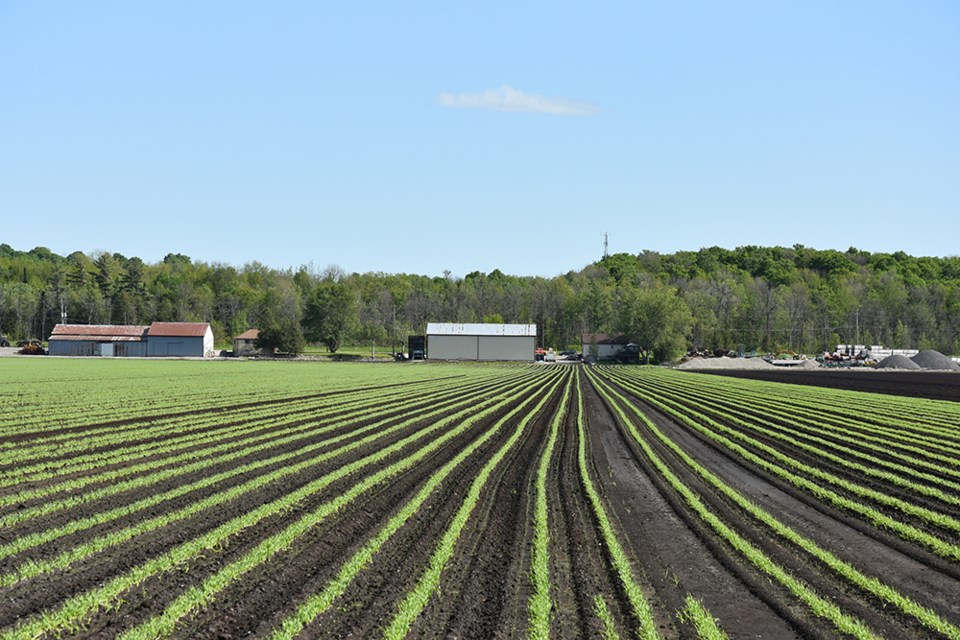When the Canadian government halted all non-essential air travel, it raised red flags for the agricultural sector, which relies on guest farm workers from countries like Mexico and Jamaica for a successful growing season.
Jody Mott, Executive Director of the Holland Marsh Growers Association, was among the interested parties bringing those concerns to the attention of the federal government – and who, on March 20, received “good news.”
In the wake of representations from a wide range of economic interests, the Ministry of Immigration, Refugees and Citizenship has now announced exemptions to the travel ban for foreign nationals who have already committed to working, studying or making Canada their home.
That means that the travel of agricultural guest workers will be deemed “essential,” and will be permitted despite COVID-19 concerns.
Agricultural workers will still undergo health screening before being allowed to fly in to Canada, and then will be placed in isolation for 14 days.
“At the moment, we don’t know what that’s going to look like,” said Mott, noting that additional information and details are expected to be released on Monday – but at least the announcement gives farmers some assurance, she said, “so we can at least start looking at plans.”
Mott was in Ottawa about 10 days ago, for the talks that led to the exemptions. “It was a really, really group effort, basically provincial and federally working together,” she said, to address concerns over food security and sustainability in Canada in the coming months.
She had praise for the level of co-operation among levels of government, recognizing the importance of temporary guest workers to today’s agriculture. “It was very positive, realizing we need the experienced workers,” Mott said.
“The support from the public, behind the farmers, has been tremendous, and we appreciate that as well,” she added.
Mott has received calls from local residents, volunteering to assist the farmers as needed. It means that farmers can now bring in those “essential, experience agricultural workers” as the first step, “then we’ll be looking for other people to work along side of them,” she said.
Christina Hambly, of Gwillimdale Farms in Bradford West Gwillimbury, also attended the Ottawa meeting.
“Every farm in the area has very different aspect,” and different needs for workers, Hambly said, noting Gwillimdale usually brings in its first group of guest workers in January to assist at the packing plant; a second in April, to get the land ready for cultivation and seeding; and then additional agricultural workers to maintain and harvest the crops.
Before Friday’s announcement, when it looked like agricultural workers might be banned from travel, “we were working on a contingency plan,” Hambly said.
Farrmers were looking at working together, to share labour and at least ensure that seeding would get done. “In these tough times, we have to come together,” she said.
The decision to deem farm workers “essential” comes just in time for growers like Gwillimdale, which farms over 1000 acres.
“It’s very important for us. Without these foreign workers, we don’t have enough people to do the work,” Hambly said.
Some of the workers have been coming back to the same farms for “10 years, 15 years.” They are experienced, trained on the equipment, and work as an effective team.
“We really need these guys.”
She doesn’t see the 14-day isolation period for the workers as a problem. “We can isolate the workers. That’s not an issue. They have separate housing,” Hambly noted, reassuring the public. “We can do this, and we are willing to do this.”
Among the details still to be worked out include getting the workers their necessary papers and health cards once they arrive, but it is something she feels can also be carried out responsibly.
The Hon. Marco Mendicino, Minister of Immigration, Refugees and Citizenship, noted, “Today’s announcement will ensure both a robust response to addressing the spread of the virus, and that our farmers, fishers and other producers have the workers they need, when they need them, to strengthen Canada’s food security and provide other vital service.”
“The participation of temporary foreign workers on our farms and in our food businesses is absolutely necessary,” said the Hon. Marie-Claude Bibeau, Minister of Agriculture and Agri-Food Canada. “It is nothing less than an issue of food security. We are making sure that our food supply chain is not compromised by the closure of our borders, as we now need thousands of workers on the farms for the planting season as well as the processing of foods from the land and sea.”
“It is an unprecedented time,” said Hambly, noting that Gwillimdale's packing plant is now running full-time to meet orders from as far away as California.
She encouraged Canadians to support the agricultural sector in its needs, to make sure that in 12 or 18 months, there are no shortages and the food supply is secure.
Friday's announcement included several other changes to streamline the guest worker program. The allowable employment duration for foreign workers has been increased from one to two years, reducing the administrative burden and increasing flexibility and the two-week recruitment period for food processing and agricultural employers has been waived for the next six months.
